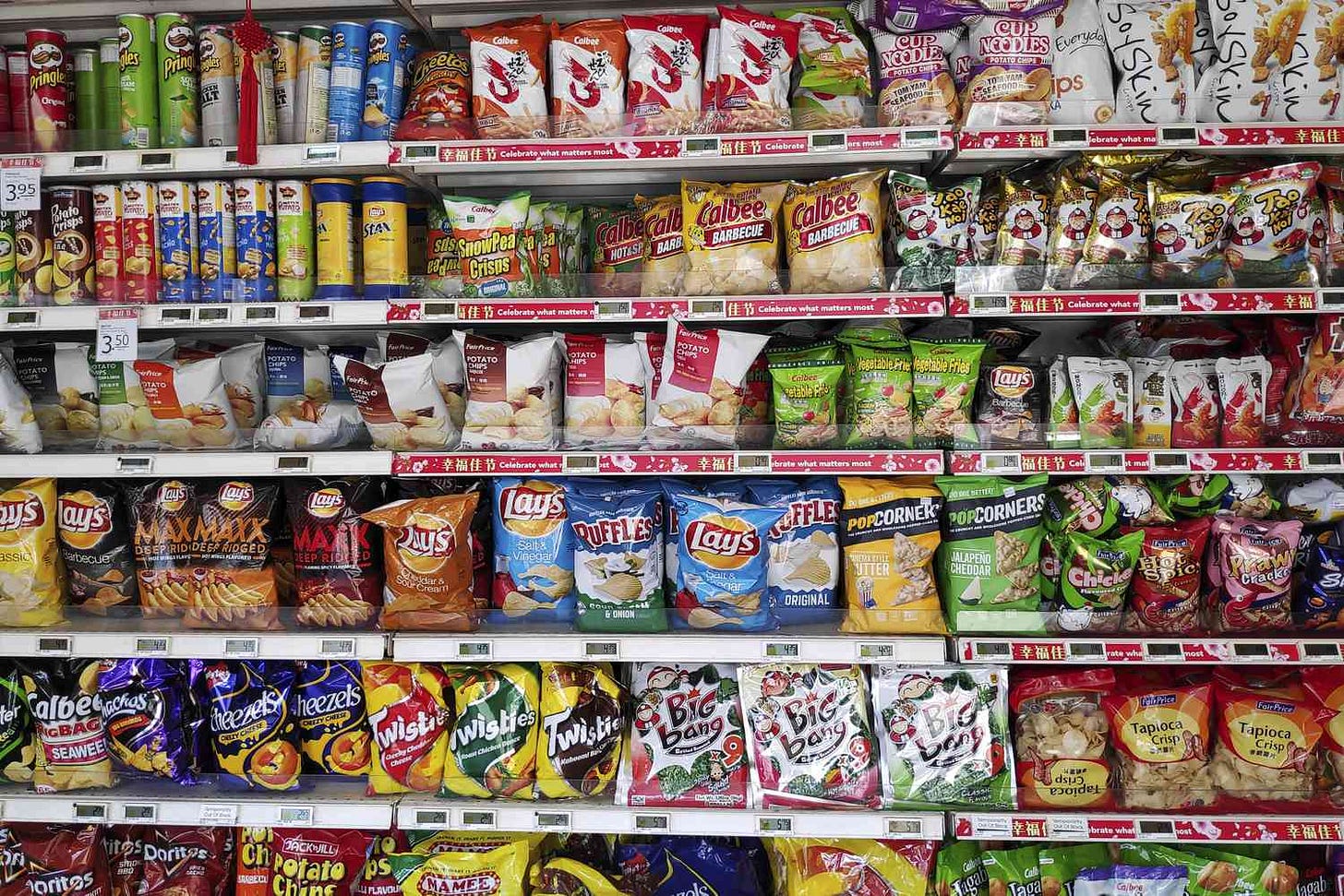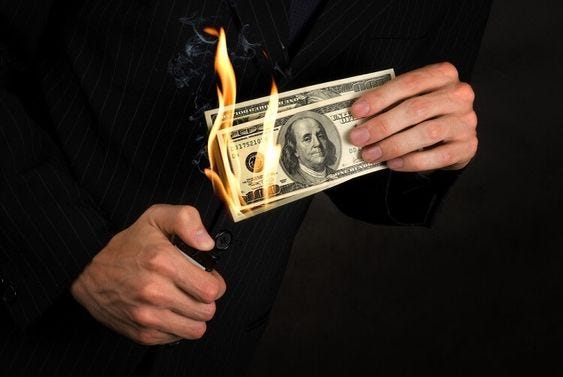Last week, I went to dinner with my girlfriend and three of our friends: a perfect excuse for me to spring my trap — asking them questions so I could write this very piece. “What things are worth spending money on and what things aren’t?”
While our finances aren’t the exact same, none of us are rich nor totally broke at the moment. And while we’re still a quite specific group of five people, and not representative of our whole generation, I think we offered at least an interesting glimpse:
The first thing we universally decided was NOT worth spending money on was clothing. Especially for basics: expensive socks, underwear, undershirts? What’s the point? The upgrade in quality just isn’t worth it. And buying nice brands at retail prices in general? Pass. BUT there were some exceptions. We agreed it was worth getting sturdy, good-quality mainstays like jeans. And both women agreed that the right shoes and handbags were a good investment.
The next category of spending we avoided was transportation. Expensive cars? All we needed was a vehicle that could get us around. Granted, none of us are able to get a very expensive car, but even with higher income, this would be very far down our list of expenditures. A related expense we laughed about was vanity plates. And while they’re not actually as expensive as you might think (only about $100) we all agreed it’s a total waste. We also didn’t fork out for other luxury travel expenses: business class flights, valet parking, and luxury hotels. When it came to travel, we were much more concerned about getting there and making the most of a trip. And none of us ever use hotel amenities or stay in our rooms long enough to be worth the insane prices that expensive hotels charge.
Almost all of us agreed that high-end alcohol wasn’t worth it: the cheaper shit did the job. One friend did say it made a difference in how she felt the next day, but the rest of us seemed okay with sticking with well liquor and just facing the consequences of self-annihilation. One expense that we wanted to avoid but couldn’t, especially in LA, was haircuts. And the fact that it costs the same to do a trim? Our “cheaper does the job” philosophy also applied to name brand medicine, and women’s branded body products that get “pink taxed” like razors, shampoos, and body wash.
One fun, very specific expense that came up was mined diamonds. There is only one person in the group who is planning for an engagement and had already discussed rings with their partner. Besides lab-grown diamonds being cheaper, you can also be sure that they were not directly involved in supply chains that fuel wars and force children into labor. It’s a rare but enjoyable instance where the cheaper alternative is also the moral one.
So, what did we like spending money on? The fact that I asked this out at dinner was a helpful clue. We were at Camphor, a one Michelin star restaurant in downtown LA. But we were there for a special prix fixe menu night where the only entrée was steak frites and, most importantly, it was at a huge discount. This was one use of money we all agreed on: an occasional nice dinner. We don’t all indulge in the same frequency, but we all appreciate a unique fancy meal every now and then. My girlfriend was quick to point out that in LA, that can be tricky. Too many trendy restaurants cost almost as much as a meal at Nobu Malibu, while not being nearly as good. But if it’s the right place and the right price, we thought dinner was a good use of money. By the way, our meal at Camphor was definitely worth the price.
Dinner fit into a larger category of good spending: experiences. One of my friends is a sucker for theme parks, some of us enjoy concerts or live theater. Whatever form it took, we all felt it was worth forking over some money for an activity to break up the normal routine of life.
The other large category that we agreed on was quality of life. That included items that you used for a long time like mattresses and bedding. After all, you spend about a third of your life in bed. More if you’re like me and sometimes require ten hours of sleep. It also meant items like suitcases, where one more expensive purchase saved you having to constantly replace a cheaper one. Same with tech: those knock-off Bluetooth earbuds may cost less, but when the battery dies after less than a year, you’ll wish you just made a one-time splurge that lasted. It also applied to smaller things like body care and beauty products. Like with a mattress, these kinds of products have cheaper alternatives, but were worth the investment when you add up the tangible ways that they made life easier and more enjoyable.
The next category of spending that we agreed was wise can be generally described as NOT DIY. Sure, you could read the manual and do a bad job of mounting your new 60-inch flat screen TV. But why do that when you could pay a professional a couple hundred dollars and not spend three hours looking through your toolkit for a type of wrench you know you don’t have. After all, time is money. The same went for most types of repairs and even applied to apartment cleaners.
Then there was the most interesting category of spending: treats. The extent to which our generation loves “little treats” has been fully memeified and we were no exceptions to the rule. Whether it was the occasional expensive coffee, or the delicious Trader Joes honey goat cheese, we all knew that a small splurge was sometimes the exact boost we needed to get through a hard day or cope with a shitty one.
Overall, it seemed that, like our generation as a whole, we liked to spend money to make our day-to-day lives better and easier, unlike our parents’ generation, who mostly avoided spending on small things and instead would save to splurge on things like big gifts or expensive vacations. It seems like we’d rather be low-level happy more often instead of mostly miserable as a lead up to a big experience. Like Tom and Donna in Parks and Rec, we abide by the mantra of “Treat yo self.”
This doesn’t mean that we don’t realize saving is important. But a lot of people in our generation are in a funny position of having significant expendable income, but still being nowhere near ready for an expense like a house. So instead of being intensely frugal to save for a goal that feels so far away, we enjoy ourselves and will figure that out later. Who knows, there could be four economic booms and busts before we’re ready to buy a home.
It was also nice to see that this wasn’t entirely a selfish line of introspection. We all mentioned donations as another worthwhile use of money. Like good coastal liberal professionals, we commit to using at least some of our excess money to try and make the world a better place. However, very crucially, this did NOT include donating to our alma mater. To be fair, if I had more money than I could ever spend, I still wouldn’t give to my university, but that’s a separate point.
If I told my eight-year-old self that I had someone come every two weeks to clean my apartment, he’d say “holy shit, you must be so rich.” But then if I told him how much money I had currently saved he’d say “wait, that’s not that much.” Fair point, eight-year-old me. I’m still figuring it out. It’s not perfect and it doesn’t always make sense. Perhaps that’s why I have a Soho House membership but still drive the beat-up 2005 Hyundai Sonata I got when I first moved to LA.
……..
Maurin Mwombela is a writer from Washington, D.C who primarily works in comedy television. His previous projects include Apple TV's Fraggle Rock reboot, NBC's Mr. Mayor and ABC’s Single Parents.







